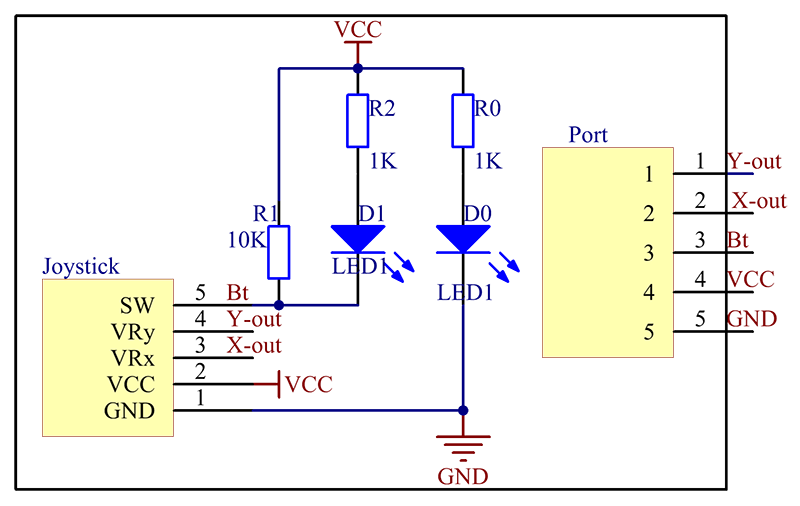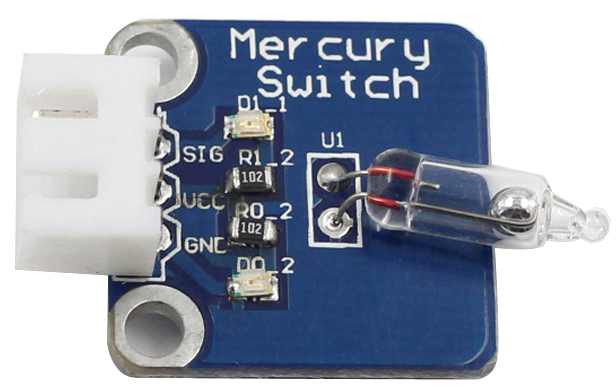Mercury Switch Module
Contents
Introduction
Similar to a tilt switch, a mercury switch is used to detect slight inclinations of a large angle. A mercury switch (also known as a mercury tilt switch) is a switch which opens and closes an electrical circuit through a small amount of liquid mercury.
Mercury switches have one or more sets of electrical contacts in a sealed glass envelope which contains a bead of mercury. The envelope may also contain air, an inert gas, or a vacuum. Gravity is constantly pulling the drop of mercury to the lowest point in the envelope. When the switch is tilted in the appropriate direction, the mercury touches a set of contacts, thus completing the electrical circuit through those contacts. Tilting the switch the opposite direction causes the mercury to move away from that set of contacts, thus breaking that circuit.
The schematic diagram of the module is as follows:

When the mercury switch is tilt ,the SIG output low level,then the corresponding LED is lights up Note: Mercury is harmful to human body and environment. Thus, please BE CAREFUL when using a mercury switch in case of glass breaking. It should also be properly handled if it's no longer used.
Features
1)A premium switch module suitable for beginners
2)Effective in environmental extremes
3)PCB size: 2.0 x 2.0 cm
4)Working voltage: 3.3-5V; with power light and signal output indicator
5)Compact size; When the module tilts, it outputs low and the corresponding LED lights up.
Application
A mercury switch is used to detect slight inclinations of a large angle.
Resource
Mercury_Switch_test_experiment_for_Raspberry_Pi![]()
Mercury_Switch_test_experiment_for_Arduino![]()
